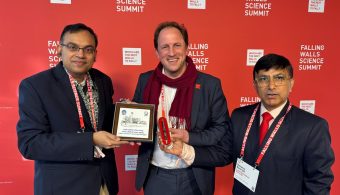Image Credit: www.bundesregierung.de
The much-awaited Free Trade Agreement (FTA) negotiations between India and the European Union (EU) will be a central focus when German Foreign Minister Johann Wadephul visits India next week, according to the media reports. This will be Wadephul’s first official trip to India in his new role, and the visit is expected to touch on a wide spectrum of strategic, defence, and economic issues.
FTA Talks Gain Momentum
India has long sought a balanced FTA with the EU, which comprises 27 member states. New Delhi views Germany—Europe’s most populous and economically strongest country—as a key partner capable of understanding and voicing India’s trade concerns within the bloc.
Negotiations have stalled in the past on sensitive sectors such as agriculture and dairy farming, but officials suggest that progress may be made during Wadephul’s visit. The talks come shortly after India concluded a separate trade deal with Britain, giving added momentum to discussions with Europe.
Strategic and Defence Cooperation
Defence is expected to be a major area of dialogue. India is keen on acquiring six German-designed submarines to be built at Mazagon Dock Shipbuilders in Mumbai in partnership with ThyssenKrupp Marine Systems (TKMS). According to government sources, the Indian Navy, Defence Ministry, and National Security Council have already held consultations and reached a preliminary decision on the project.
The submarine deal—worth thousands of crores of rupees—would span at least a decade in construction and represent one of the most ambitious Indo-German defence collaborations to date.
Other joint security initiatives, such as Operation Sindoor, a counter-terrorism exercise, may also be discussed during the ministerial meetings.
Economic Partnerships and Semiconductors
Economic ties between the two countries are set to deepen further. Discussions are likely to cover collaboration in semiconductor manufacturing, an area where India is seeking foreign investment and technology partnerships.
Meanwhile, German conglomerate Siemens is opening a Global Capability Centre in India, underlining the growing business footprint.
Education and Student Exchanges
Higher education and academic exchanges are another priority. With a growing number of Indian students opting for Germany’s globally reputed universities—including Heidelberg and Göttingen—both governments are hopeful that student numbers can double in the coming years. Plans are also underway to expand institutional partnerships, such as a proposed tie-up between the Indian Institute of Technology (IIT) Chennai and a German university.
FTA and Chocolate Market Buzz
Interestingly, trade liberalisation could also reshape India’s confectionery market. Lithuanian chocolatier Rolandas Janceris, Chairman of Pergale, told Times Now that preparations are already in place for EU chocolate makers to enter India if the FTA goes through.
He noted that Indian consumers could soon see premium varieties such as dark chocolate with mango filling, alongside liquor-based chocolates featuring brandy, champagne, and pink gin—products that are currently limited in availability.
“Preparations have already begun, and a presence at trade fairs is there,” Janceris said, highlighting how European brands are ready to adapt their offerings to Indian tastes.



